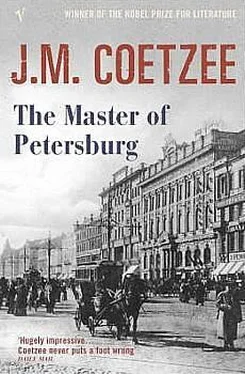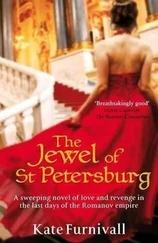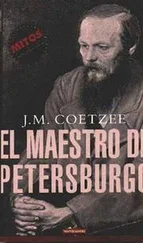'You don't have to decide at once.'
'But I will decide at once! No! That is my decision!'
'What if you are already pregnant?'
She bridles. 'That is none of your business!'
'And what if I were not to go back to Dresden? What if I were to stay here and send the allowance to Dresden instead?'
'Here? In my spare room? In Petersburg? I thought the reason you can't stay in Petersburg is that you will be thrown in jail by your creditors.'
'I can wipe out my debts. It requires only a single success.'
She laughs. She may be angry but she is not offended. He can say anything to her. What a contrast to Anya! With Anya there would be tears, slammed doors; it would take a week of pleading to get back in her good books.
'Fyodor Mikhailovich,' she says, 'you will wake up tomorrow and remember nothing of this. It was just an idea that popped into your head. You have given it no thought at all.'
'You are right. That is how it came to me. That is why I trust it.'
She does not give herself into his arms, but she does not fight him off either. 'Bigamy!' she says sofdy, scornfully, and again quivers with laughter. Then, in a more deliberate tone: 'Would you like me to come to you tonight?'
'There is nothing on earth I want more.'
'Let us see.'
At midnight she is back. 'I can't stay,' she says; but in the same movement she is shutting the door behind her.
They make love as though under sentence of death, self-absorbed, purposeful. There are moments when he cannot say which of them is which, which the man, which the woman, when they are like skeletons, assemblages of bone and ligament pressed one into the other, mouth to mouth, eye to eye, ribs interlocked, leg-bones intertwined.
Afterwards she lies against him in the narrow bed, her head on his chest, one long leg thrown easily over his. His head is spinning gendy. 'So was that meant to bring about the birth of the saviour?' she murmurs. And, when he does not understand: 'A real river of seed. You must have wanted to make sure. The bed is soaked.'
The blasphemy interests him. Each time he finds something new and surprising in her. Inconceivable, if he does leave Petersburg, that he will not come back. Inconceivable that he will not see her again.
'Why do you say saviour?'
'Isn't that what he is meant to do: to save you, to save both of us?'
'Why so sure it is he?'
'Oh, a woman knows.'
'What would Matryosha think?'
'Matryosha? A little brother? There is nothing she would like more. She could mother him to her heart's content.'
In appearance his question is about Matryosha; but it is only the deflected form of another question, one that he does not ask because he already knows the answer. Pavel would not welcome a brother. Pavel would take him by his foot and dash his brains out against the wall. To Pavel no saviour but a pretender, a usurper, a sly little devil clothed in chubby baby-flesh. And who could swear he was wrong?
'Does a woman always know?'
'Do you mean, do I know whether I am pregnant? Don't worry, it won't happen.' And then: 'I'm going to fall asleep if I stay any longer.' She throws the bedclothes aside and clambers over him. By moonlight she finds her clothes and begins to dress.
He feels a pang of a kind. Memories of old feelings stir; the young man in him, not yet dead, tries to make himself heard, the corpse within him not yet buried. He is within inches of falling into a love from which no reserve of prudence will save him. The falling sickness again, or a version of it.
The impulse is strong, but it passes. Strong but not strong enough. Never again strong enough, unless it call find a crutch somewhere.
'Come here for a moment,' he whispers.
She sits down on the bed; he takes her hand.
'Can I make a suggestion? I don't think it is a good idea that Matryosha should be involved with Sergei Nechaev and his friends.'
She withdraws her hand. 'Of course not. But why say so now?' Her voice is cold and flat.
'Because I don't think she should be left alone when he can come calling.'
'What are you proposing?'
'Can't she spend her days downstairs at Amalia Karlov-na's till you get home?'
'That is a great deal to ask of an old woman, to look after a sick child. Particularly when she and Matryosha don't get on. Why isn't it enough to tell Matryosha not to open the door to strangers?'
'Because you are not aware of the extent of Nechaev's power over her.'
She gets up. 'I don't like this,' she says. 'I don't see why we need to discuss my daughter in the middle of the night.'
The atmosphere between them is suddenly as icy as it has ever been.
'Can't I so much as mention her name without you getting irritable?' he asks despairingly. 'Do you think I would bring the matter up if I didn't have her welfare at heart?'
She makes no reply. The door opens and closes.
The plunge from renewed intimacy to renewed estrangement leaves him baffled and gloomy. He veers between a longing to make his peace with this difficult, touchy woman and an exasperated urge to wash his hands not only of an unrewarding affair but of a city of mourning and intrigue with which he no longer feels a living connection.
He is tumbling. Pavel! he whispers, trying to recover himself. But Pavel has let go his hand, Pavel will not save him.
All morning he shuts himself up, sitting with his arms locked around his knees, his head bowed. He is not alone. But the presence he feels in the room is not that of his son. It is that of a thousand petty demons, swarming in the air like locusts let out of a jar.
When at last he rouses himself, it is to take down the two pictures of Pavel, the daguerreotype he brought with him from Dresden and the sketch Matryona drew, to wrap them together face to face and pack them away.
He goes out to make his daily report to the police. When he returns, Anna Sergeyevna is home, hours earlier than usual, and in a state of some agitation. 'We had to close the shop,' she says. 'There have been battles going on all day between students and the police. In the Petrogradskaya district mainly, but on this side of the river too. All the businesses have closed – it's too dangerous to be out on the streets. Yakovlev's nephew was coming back from market in the cart and someone threw a cobblestone at him, for no reason at all. It hit him on the wrist; he is in great pain, he can't move his fingers, he thinks a bone is broken. He says that working-men have begun to join in. And the students are setting fires again.'
'Can we go and see?' calls Matryona from her bed.
'Of course not! It's dangerous. Besides, there's a bitterly cold wind.'
She gives no sign of remembering what passed the night before.
He goes out again, stops at a tea-house. In the newspapers there is nothing about battles in the streets. But there is an announcement that, because of 'widespread indiscipline among the student body,' the university is to be closed until further notice.
It is after four o'clock. Despite the icy wind he walks eastward along the river. All the bridges are barred; gendarmes in sky-blue uniforms and plumed helmets stand on guard with fixed bayonets. On the far bank fires glow against the twilight.
He follows the river till he is in sight of the first gutted and smouldering warehouses. It has begun to snow; the snowflakes turn to nothing the instant they touch the charred timbers.
He does not expect Anna Sergeyevna to come to him again. But she does, and with as little explanation as before. Given that Matryona is in the next room, her lovemaking surprises him by its recklessness. Her cries and pantings are only half-stifled; they are not and have never been sounds of animal pleasure, he begins to realize, but a means she uses to work herself into an erotic trance.
Читать дальше












